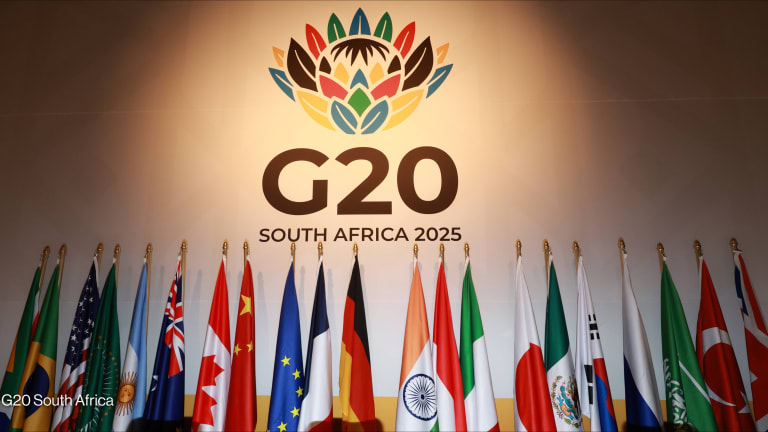
With Africa facing its first recession in a quarter century due to the effects of the COVID-19 pandemic, the United Nations Economic Commission for Africa has set out a green post-COVID-19 recovery strategy in a new report.
The pandemic isn’t the only factor. The report highlights that under current strategies, the continent is projected to see annual losses of between 3%-5% of gross domestic product by 2030 due to the impacts of climate change.
Speaking at the launch of the report, Vera Songwe, United Nations undersecretary-general and executive secretary at the commission, emphasized the urgent need to roll out financial aid packages, invest in sustainable infrastructure, and finance the transition to sustainable green and blue economies that don’t depend on unsustainable relationships with the land or ocean.
Songwe said that in the short term, this will involve the new issuance of Special Drawing Rights to boost liquidity and the extension of the Debt Service Suspension Initiative. She also said opportunities for green and blue bonds using appropriate credit enhancements, as well as debt restructuring using debt-for-climate or debt-for-nature swaps, should be considered.
Though debt-for-climate swaps are viewed as a positive step toward sustainable growth, economists warn that the right timing and the inclusion of all creditors will be necessary to ensure that such agreements are beneficial.
“[China] might be sympathetic to looking at ways to finance biodiversity globally — and debt management for climate and nature outcomes is a way to achieve that.”
— Paul Steele, chief economist, International Institute for Environment and DevelopmentPaul Steele, chief economist at the International Institute for Environment and Development, said rising debt levels are just one of several factors that have made the idea of linking debt with climate and nature more attractive.
“With a climate-responsive [U.S. President Joe] Biden administration, coupled with the European Union's Green New Deal, now is the opportunity to seize the moment for green Special Drawing Rights to be a crucial instrument to support the most climate-vulnerable countries of Africa,” he said, adding that such instruments would “help drive climate resilience, renewable energy, and nature-positive investment.”
Steele noted that the World Bank and International Monetary Fund, along with the Organisation for Economic Co-operation and Development and the U.N., have also set up a platform to pilot and design these links between debt, climate, and nature that they want to launch for the Annual Meetings of the World Bank and IMF in October. Pilot programs in selected countries will begin before that.
“The idea is that African countries … will get a more sympathetic hearing for debt relief if they are willing to link it to climate and nature outcomes from their creditors,” he said.
But Steele warned that the type of debts incurred by countries may complicate the process. “Unlike in the 1990s, where it was just Western creditors primarily under the HIPC [Heavily Indebted Poor Countries] Initiative,” he said, “now it includes China and a lot of private credit debt.”
The hope is that private creditors will view investment in climate and nature as a way to increase growth so there is more debt sustainability and to comply with their stakeholder commitments for net-zero greenhouse gas emissions.
“The Chinese are hosting the biodiversity convention at the end of this year, and we are hoping because they are hosting that convention they might be sympathetic to looking at ways to finance biodiversity globally — and debt management for climate and nature outcomes is a way to achieve that,” Steele said.
Mavis Owusu-Gyamfi, executive vice president at the African Center for Economic Transformation, also warned that though climate action needs to be thrust into the mainstream, it may be premature to link climate action with debt relief during the COVID-19 recovery phase.
Part of our Focus on: People and the Planet
This series explores how climate change and other planetary imbalances impact the rising trend of human inequality. We look into the potential solutions to eliminate inequality and support a healthy planet.
“If Africa is going to get back to the 6-7% growth, embedding sustainability in it is critical. If it's going to ensure that its health systems are robust and can withstand future shocks, embedding sustainability in it is critical,” Owusu-Gyamfi said, but she lamented that individual finance ministers were more focused on the short term. She called on the international community to prioritize helping such officials navigate the crisis.
“I'm not saying climate finance is not important — of course not. It is critical because climate finance knocks on everything that the continent is doing,” Owusu-Gyamfi said. “But there is a short-term crisis.”
Countries that are most in debt distress do not necessarily have the skills to negotiate such debt swaps, she said, adding that it will be more sensible to begin such negotiations with those that have the capacity.
“You almost have to go to the ones that have the skills to do this and learn from them … before you go to the most vulnerable countries,” Owusu-Gyamfi said. “Going after the Zambias, Nigers, and Ghanas of this world might not necessarily be the sensible next step.”
This focus area, supported by the U.N. Development Programme, explores how climate change and other planetary imbalances impact the rising trend of human inequality and vice versa. Visit the Focus on: People and the Planet page for more.









